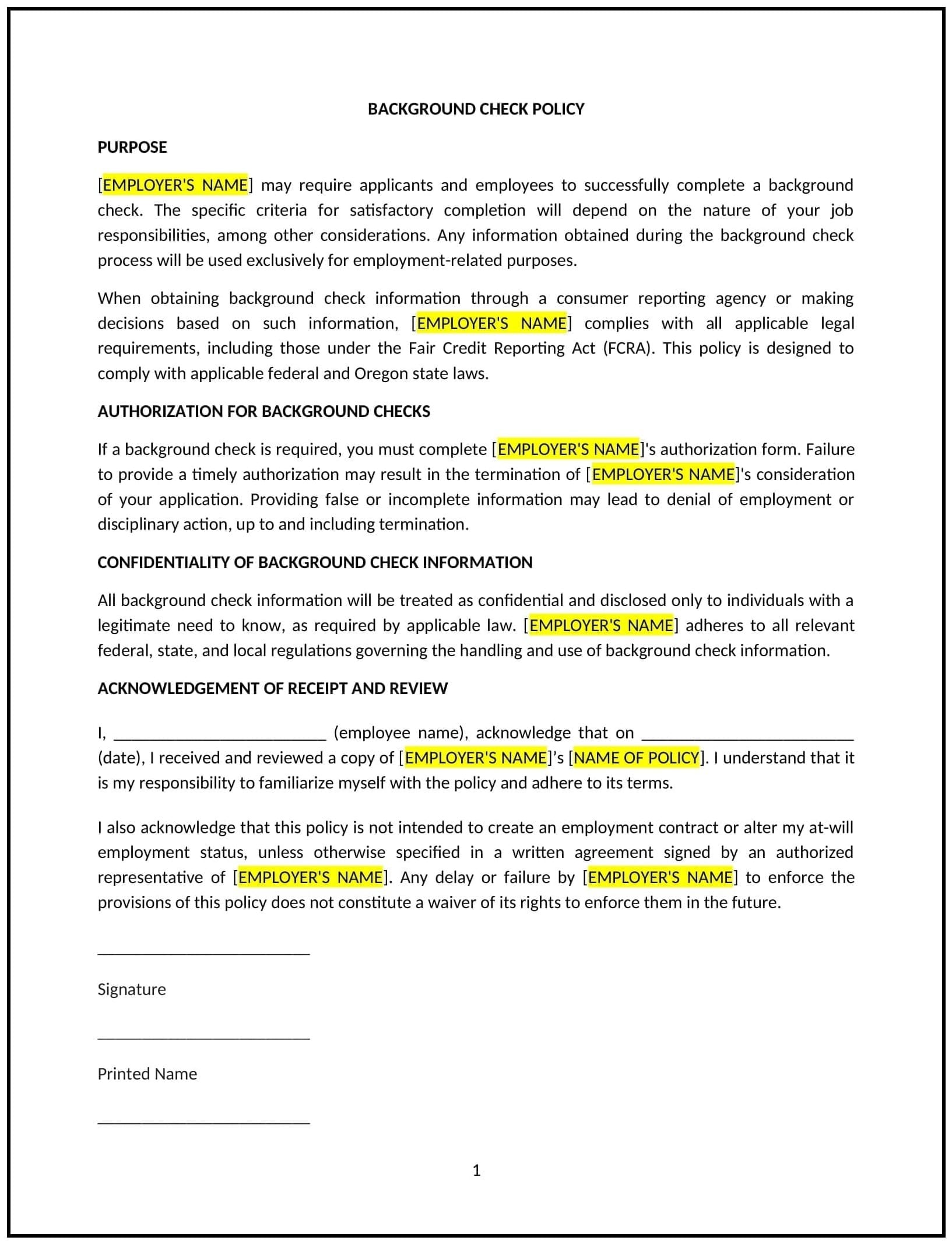Got contracts to review? While you're here for policies, let Cobrief make contract review effortless—start your free review now.

Customize this template for free
Background check policy (Oregon)
This background check policy is designed to help Oregon businesses establish guidelines for conducting background checks on potential and current employees. It outlines procedures for obtaining consent, conducting checks, and using the information obtained.
By adopting this policy, businesses can make informed hiring decisions, ensure workplace safety, and comply with legal requirements.
How to use this background check policy (Oregon)
- Define scope: Clarify what types of background checks will be conducted, such as criminal history, employment verification, or credit checks.
- Obtain consent: Outline steps for obtaining written consent from employees or candidates before conducting a background check.
- Address adverse actions: Specify procedures for notifying candidates or employees if adverse actions are taken based on background check results.
- Ensure compliance: Align the policy with Oregon’s laws regarding background checks, including the Oregon Fair Chance Act.
- Train managers: Educate supervisors on conducting background checks and using the information obtained.
- Review and update: Assess the policy annually to ensure it aligns with evolving business needs and legal requirements.
Benefits of using this background check policy (Oregon)
This policy offers several advantages for Oregon businesses:
- Informs hiring decisions: Provides valuable information to help businesses make informed hiring decisions.
- Ensures workplace safety: Reduces the risk of hiring individuals with a history of violence or misconduct.
- Supports compliance: Aligns with Oregon’s laws regarding background checks, including the Oregon Fair Chance Act.
- Enhances trust: Demonstrates the business’s commitment to fair and transparent hiring practices.
- Reduces risks: Minimizes the likelihood of legal issues related to negligent hiring.
Tips for using this background check policy (Oregon)
- Communicate the policy: Share the policy with employees and include it in the employee handbook.
- Provide training: Educate managers on conducting background checks and using the information obtained.
- Monitor compliance: Regularly review background check procedures to ensure adherence to the policy.
- Address issues promptly: Take corrective action if background checks are mishandled or used improperly.
- Update regularly: Assess the policy annually to ensure it aligns with evolving business needs and legal requirements.